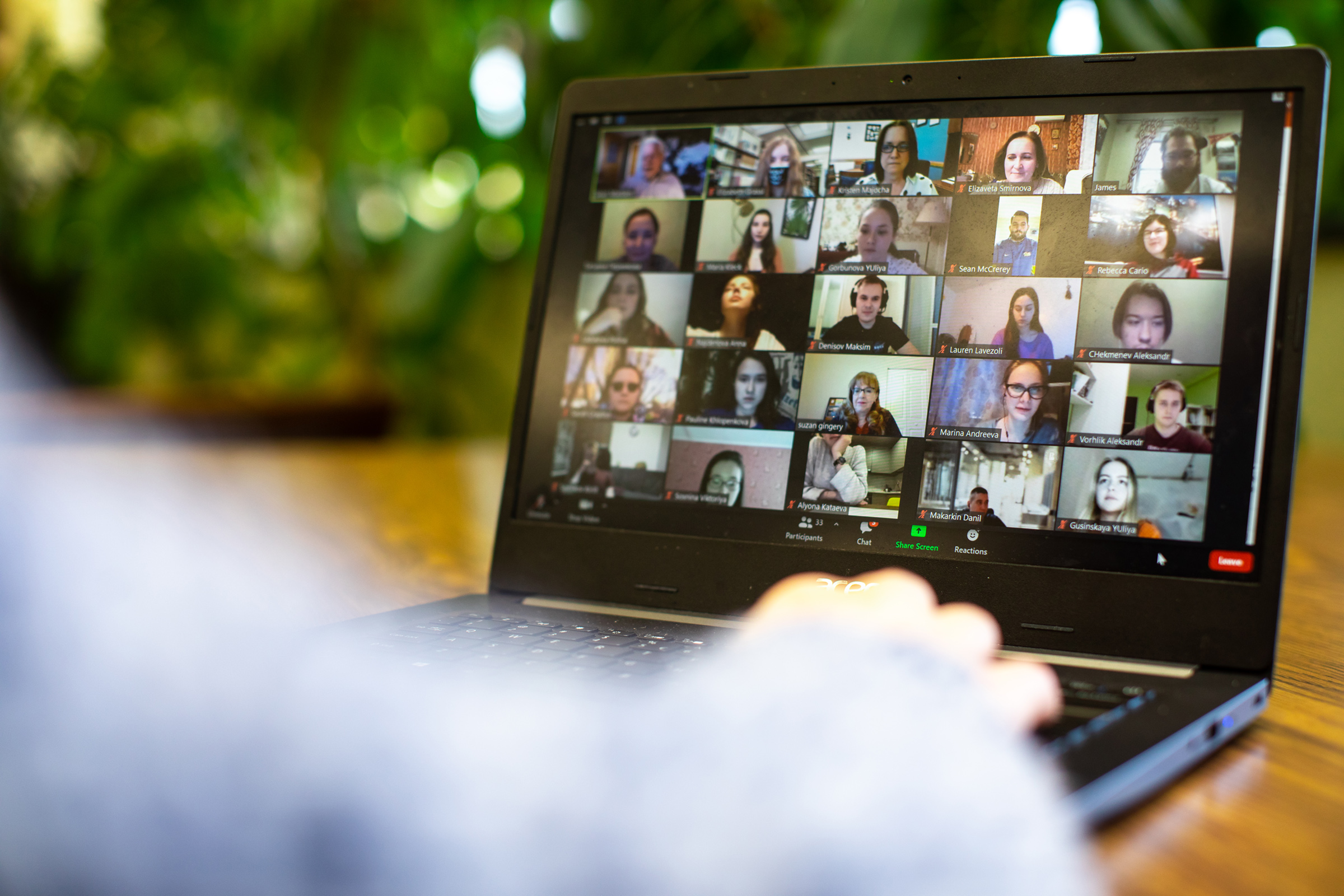Global studies major Elizabeth Grassi on a Zoom call with students in Russia.
Since 2014, students in Dr. Sean Madden's history class have checked in with students in Russia as part of a cultural exchange.

With a greeting delivered in Russian, Dr. Kristen Majocha, dean of the College of Education and Liberal Arts, set a welcoming tone for a virtual meeting March 3 between students at Cal U and students at the National Research University Higher School of Economics in Perm, Russia.
In what has become a standing event since it began in 2014, the students discussed serious topics, like issues of gun ownership in each country, and light-hearted ones, like the seemingly universal appeal of cat videos on social media.
“It makes us laugh,” said senior global studies major Elizabeth Grassi. “Everyone is going to react similarly to a cute cat video, no matter where you live.”
The student exchange resulted from history professor Dr. Sean Madden’s experience in 2012 as a Fulbright Specialist in Russia. He collaborated with Dr. Tatyana Permyakova, a professor at the National Research University then, and the two have continued to work together on behalf of their students.
Cal U students were curious about the situation with COVID-19 vaccinations in Russia.
“It’s going pretty fast,” said Denisov Maksim.
But, Permyakova added, “wearing a mask has been mandated. You cannot go to any public places or on public transportation without a mask. Hand sanitizers are everywhere.”
The Russians were curious about popular sports in America, even as a few acknowledged being mystified by baseball.
“It’s not popular at all – it’s weird,” Maksim said.
And why do we call “soccer” “football” here?
Students were stumped.
The meetings have always been virtual, of course, but students from one country were able to gather in one classroom to talk online to students in the other online. Not so this year, with more than 30 faces in Zoom boxes exchanging questions and observations.
They met in smaller groups to make an open dialogue easier before gathering together to end the hour-long session.
“We all feel awkward at first,” Permyakova said. “And it always surprises me, how from the feeling of awkwardness, you begin to talk and you smile back. Then we don’t feel as awkward, we can talk, and we find that we have something in common.
“There is more ground we can walk together.”
